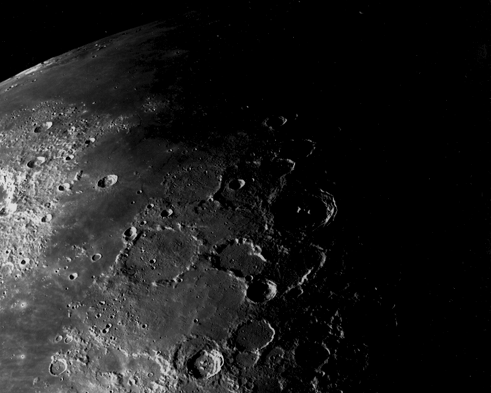
|
Explanation: Checking out the Galileo spacecraft's cameras during its December 1992 flyby of Earth's Moon, controllers took this dramatically illuminated picture through a violet filter. The view looks down on the Moon's north polar region with the Sun shining from the left at a low angle and the direction toward the moon's North pole toward the lower right. Across the image upper left stretches the smooth volcanic plain of the Mare Imbrium. Pythagoras crater, 65 miles wide, is near the center of the image -- mostly in shadow, its central peak just catches the sunlight. Yesterday, the Moon made its closest approach to Earth and was full for the second time in July (as reckoned by UT dates). The closest point in the Moon's orbit is referred to as Lunar Perigee, a mere 221,797 miles at 8 hours UT. The second full moon in a month is known as a "Blue Moon".
|
January February March April May June July August September October November December |
| ||||||||||||||||||||||||||||||||||||||||||||||||
NASA Web Site Statements, Warnings, and Disclaimers
NASA Official: Jay Norris. Specific rights apply.
A service of: LHEA at NASA / GSFC
& Michigan Tech. U.
Based on Astronomy Picture
Of the Day
